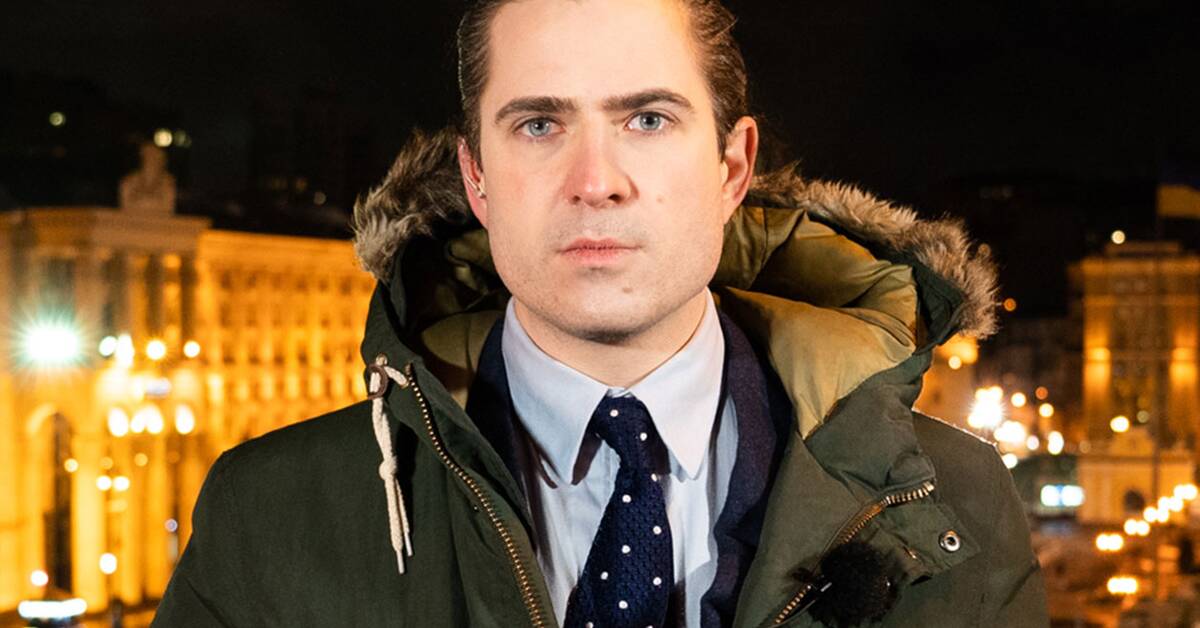When Russian President Vladimir Putin announced almost exactly a year ago that a "special military operation" had been launched to "denazify" and "demilitarize" neighboring Ukraine, it was in fact a full-scale war.
The question is whether it was a lie, if by lie you mean a deliberate untruth.
Not that there is no lying from the Russian power.
But the choice of words reflects how Russia apparently thought it would go.
The blitz annexation of Ukraine's Crimean peninsula in 2014 was a source of great consternation among Russians.
They saw roughly the same scenario in front of them now.
Which from the outside appeared unlikely to say the least, but the Russian policy makers seem to simply believe their own propaganda fantasies of a Ukrainian people who would welcome Russian invasion and supremacy with open arms.
That has not turned out to be the case, of course.
And that largely explains why Russia quickly switched to talking about a conflict: not with Ukraine, but with the West.
You cannot accept the idea that a smaller neighboring country you look upon so condescendingly can actually offer resistance, but against a united West it is easier.
The "forbidden" K-word
There is a kind of living myth that in Russia you cannot call what is happening a war.
In fact, it is going absolutely well, if you mean that the war is against the West.
Nor is it only Russia that wants to formulate the situation as a conflict with the West.
Kiev, of course, struggles every day to instill a sense of common cause, with Ukraine merely being the front line of a collective struggle.
But while Russian power has only recently seriously transitioned from talking about malicious rivalry from the West to a major existential conflict (in which Russia is, of course, the victim), it is not a new thought.
You just say straight out what was previously baked into sweeping ambiguities and hints.
If Putin's previous time in power was characterized by a kind of "order and order" idea after the chaotic 90s, the last 15 years or so have been more about restoring Russia's greatness and pushing back the West, which it claims is aggressively opposing a every imaginable way.
From the Kremlin tower, a siege could be seen ahead.
Stillborn diplomacy
In the West, many perceived this either mostly as a kind of political rhetoric.
Or as a kind of untruth that could be combated by covering the Russian propaganda with lies, which is a strange thought.
Without being a mind reader, on the contrary, it appears to be something Putin and the small clique around him actually believe in for a long time.
A worldview that guides Russian decision-making, regardless of how wrong the outside world thinks it is.
When world leaders shuttled to Moscow to sit opposite Putin at the now world-famous long table, hoping to avoid full-scale war, it was therefore also probably in vain.
While France's Emmanuel Macron or Germany's Olaf Scholz might see an opponent they could rebuke, Putin saw enemies attacking him with the help of a country Putin doesn't even accept exists.
The Russian demands for "security guarantees" were such that Western countries could never accept, moreover over Ukraine's head, which the Russian side of course knew.
The decision had already been made and the road to get there is measured in decades, not months.

